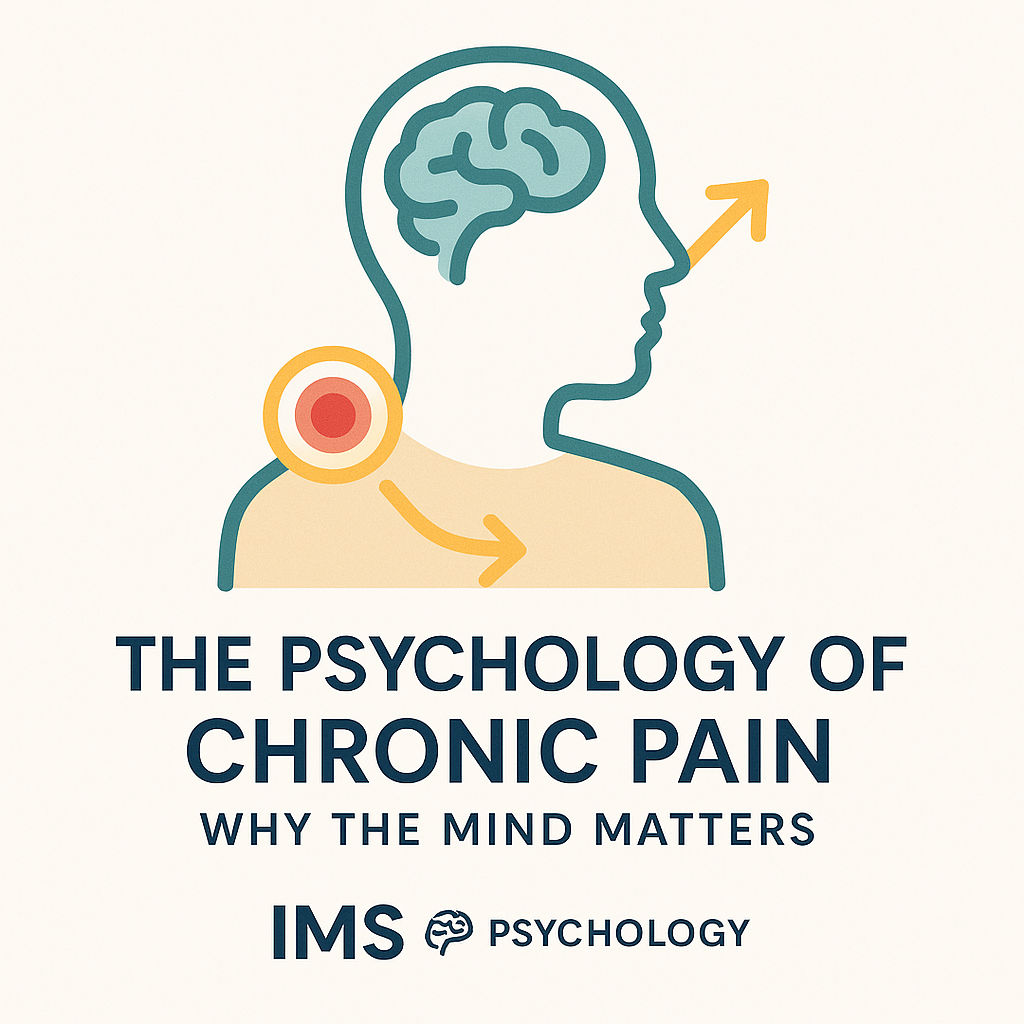
The Psychology of Chronic Pain: Why the Mind Matters
Share
The Psychology of Chronic Pain: Why the Mind Matters
Chronic pain is more than a physical issue — it’s deeply connected to psychology. Learn how the mind influences pain and evidence-based strategies for relief.
Introduction: Pain That Doesn’t Go Away
Pain is meant to protect us — a signal from the body that something is wrong. But for millions of people, pain doesn’t stop when the body heals. Chronic pain lingers for months or years, affecting mood, sleep, relationships, and quality of life.
While pain is often thought of as purely physical, research shows it is also shaped by the brain, emotions, and nervous system. This does not mean pain is “all in your head.” Instead, it means the mind and body are inseparably linked — and understanding this connection opens up new possibilities for relief.
What Is Chronic Pain?
Chronic pain is pain that lasts longer than three to six months, beyond normal healing time. Common conditions include:
-
Back pain
-
Fibromyalgia
-
Migraines
-
Arthritis
-
Neuropathic pain
Unlike acute pain (a protective signal), chronic pain often continues even without ongoing injury.
The Mind-Body Connection in Pain
The brain is the central processing hub for pain. Sensory signals from the body travel through the nervous system, but the brain interprets these signals — and psychological factors shape that interpretation.
1. The Gate Control Theory of Pain
Proposed by Melzack and Wall (1965), this theory suggests that the spinal cord acts like a “gate.” Psychological states (stress, attention, mood) can open or close the gate, amplifying or reducing pain.
2. The Role of Stress
Chronic stress activates the sympathetic nervous system, increasing muscle tension, inflammation, and pain sensitivity.
3. Fear-Avoidance Cycle
-
Fear of pain → Avoiding activity → Deconditioning → More pain.
CBT helps break this cycle by challenging catastrophic thinking and encouraging gradual re-engagement.
4. Neuroplasticity
The brain can “rewire” itself through repeated pain signals, making pain pathways more sensitive over time. This explains why chronic pain often persists even after the body heals.
Psychological Factors That Influence Pain
-
Catastrophizing: Expecting the worst intensifies pain perception.
-
Depression & Anxiety: Emotional distress lowers pain tolerance.
-
Attention & Focus: The more we fixate on pain, the stronger it feels.
-
Beliefs About Pain: Viewing pain as uncontrollable or permanent worsens suffering.
The Role of Trauma and Adverse Experiences
Research shows that unresolved trauma can increase vulnerability to chronic pain. Early life adversity often dysregulates the nervous system, making the body more reactive to stress and discomfort. Trauma-informed care acknowledges these connections and prioritizes safety and compassion.
Evidence-Based Psychological Approaches to Pain
Psychology offers practical, research-backed tools for managing pain:
1. Cognitive Behavioral Therapy (CBT)
-
Identifies unhelpful thoughts about pain.
-
Reframes catastrophizing into balanced perspectives.
-
Encourages pacing, activity, and relaxation techniques.
2. Acceptance and Commitment Therapy (ACT)
-
Focuses on accepting pain rather than fighting it.
-
Builds a life aligned with personal values, even with ongoing pain.
3. Mindfulness & Meditation
-
Trains attention away from rumination.
-
Reduces activity in brain regions linked to pain processing.
4. Biofeedback
-
Helps individuals gain awareness of physiological responses (muscle tension, heart rate) and learn regulation skills.
5. Multidisciplinary Pain Management
Combines medical, psychological, and physical approaches for holistic care.
Lifestyle & Self-Management Tools
-
Movement: Gentle exercise (yoga, walking) maintains mobility and reduces sensitivity.
-
Sleep Hygiene: Poor sleep worsens pain perception.
-
Nutrition: Anti-inflammatory diets may support pain management.
-
Support Networks: Social connection reduces isolation and distress.
When Pain Feels Overwhelming
If chronic pain interferes with daily life, professional help can make a difference. Pain psychologists, therapists, and multidisciplinary clinics provide tailored strategies that address both body and mind.
Practical Tools You Can Use Today
IMS Psychology offers downloadable, trauma-informed workbooks that support emotional resilience and mind-body awareness. Our [Chronic Pain & Resilience Workbook] provides step-by-step exercises in mindfulness, CBT reframing, and stress reduction to help you manage pain with greater control and self-compassion.
Conclusion: Healing Beyond the Body
Chronic pain is real, complex, and deeply influenced by the mind. While it may not always be possible to eliminate pain, psychology offers ways to reduce suffering, increase function, and reclaim quality of life.
The mind does not create pain — but it can help transform the way we live with it.
If you’d like structured guidance, explore the IMS Psychology workbooks, designed to turn scientific insight into everyday relief strategies.
written by,
Martin Rekowski (02.10.2025)
External Source
https://www.apa.org/topics/pain/chronic
American Psychological Association – Chronic Pain and Psychology